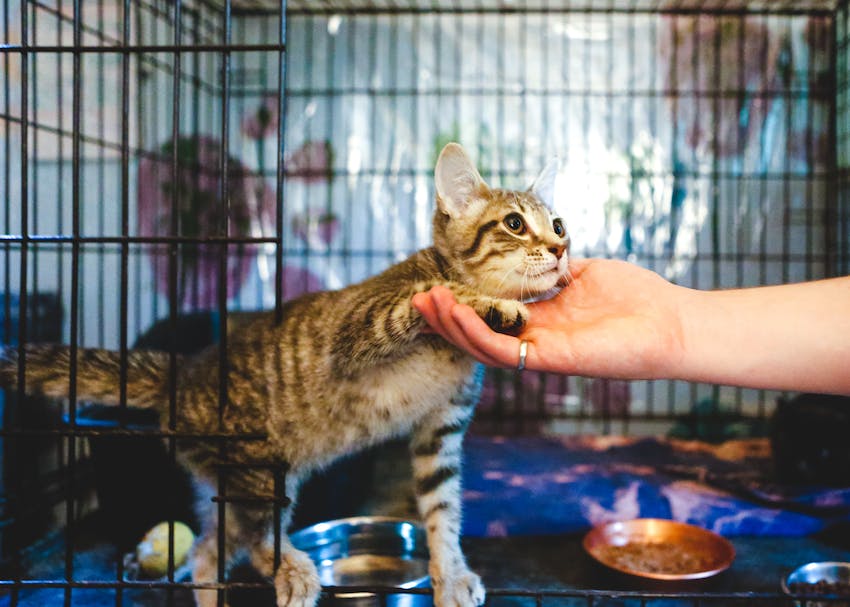Even years later, the influx in pets during the COVID-19 pandemic has had a lasting impact on all of our communities—which increasingly includes your local animal shelters. Now more than ever, it’s important to show your animal shelter appreciation and support your local shelter. The good news is that there are a variety of ways you can help out these important and often understaffed organizations.
Nine ways to express your animal shelter appreciation and support
From fostering dozens of cats over the years to becoming a board member of the Seattle Animal Shelter Foundation, Katy Thweatt has a passion for the animal welfare organizations within her community. Keep reading for nine tips from Thweatt on how to help animal welfare organizations in your community and show some animal shelter appreciation.
1. Volunteer
Many animal shelters may be closed to the public (except by appointment), but that doesn’t mean they don’t have volunteers on-site. If you’re healthy, consider becoming a volunteer to help those animals in need. This is one of the best, most direct ways you can show your animal shelter appreciation.
2. Foster
Animal shelters may try to clear space by setting up pets with foster parents. Also, some shelters have virtual training in place to help this process go smoothly. If you show some animal shelter appreciation by fostering, you’ll get to meet a new furry pal! Consider your home environment, schedule, and availability. Chances are there’s a local dog or cat that would love to keep you company!
3. Drop off donations
Donations like towels, blankets, and dog or cat food may be welcome and appreciated. However, be sure to reach out to the animal shelter in your community to see if they’re open and are accepting donations at this time. Supporting your local organization by meeting some of their needs is a great way to show animal shelter appreciation.
4. Check in on your neighbors
In tough economic times, more pets may be surrendered. Consider checking in on your neighbors by phone or email to see if they need pet supplies. We’re all in this together — helping pets with homes stay out of the shelter so that there’s more room for animals in need is another way to show animal shelter appreciation.
5. Monetary donations
A good number of fundraising events are being canceled every day and shelters may struggle to give pets the same level of support as in pre-pandemic days. If you’re in a good financial place and are looking for alternatives to help animal shelters, consider a monetary contribution. Empowering your local organization to fund the initiatives that are most important to them is a fantastic way to express your animal shelter appreciation.
6. Subscribe to their newsletter
The shelter may not know what they need from the public yet, although once they do, they’ll be sure to broadcast their request! Consider sharing the animal shelter’s newsletter with your network. Show your animal shelter appreciation by spreading the word.
7. Follow your local animal shelter on social media
Even if you can’t give or donate during this time, someone in your social network may be able to help. Consider following your local animal shelter, share their social posts and make your own. Be creative in showing your animal shelter appreciation. The power of social media can truly make an impact on the animal welfare community!
8. Share your own shelter success stories
Post to your animal shelter’s page or leave a review about the impact they’ve made in your life. Spread some cheer and let others know how much they mean to you. Show your animal shelter support by sharing a personal snapshot of just how much shelters do for the communities they serve.
9. Adhere to local rules and safety guidelines
Some animal shelters still have mask recommendations, and most have bottles of hand sanitizer readily available. When on the premises, always adhere to all safety rules and recommendations, even if they're not strictly required. The pandemic may be considered "over," but these rules still go a long way in helping prevent the spread of serious illnesses among animals.


